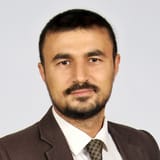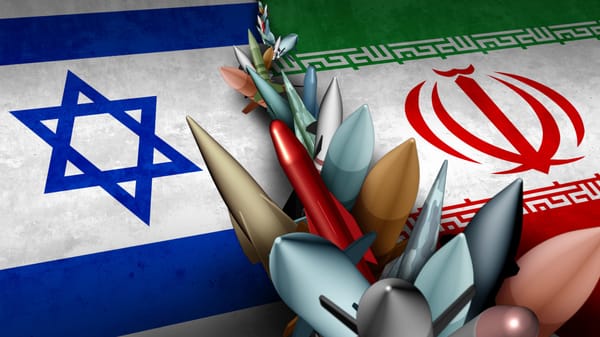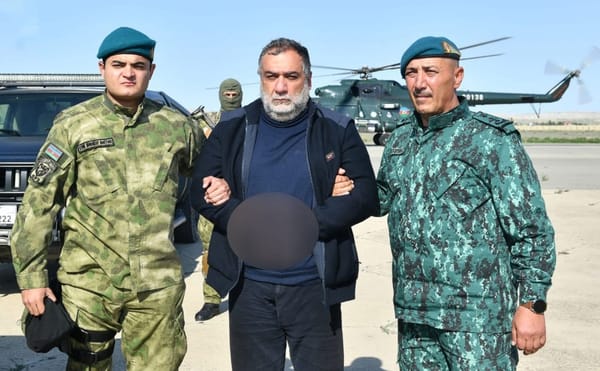Russian-Sudanese Roulette
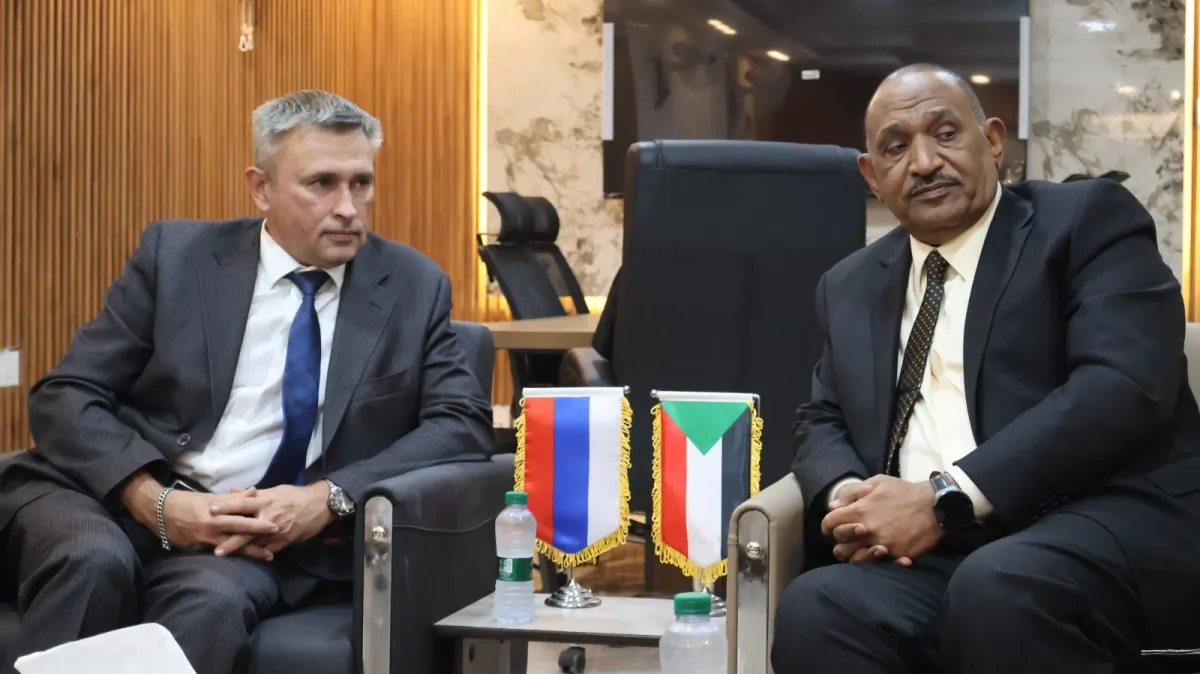
The recent seizure by rebels of a military airport in Darfur and their rapid advance toward the Libyan border threatens not only to disrupt the fragile balance of power in Sudan but also to significantly escalate the ongoing conflict. As Moscow solidifies its influence while Sudan's regions sink deeper into violence, the Sudanese civil war is rapidly evolving into a tight strategic knot—one in which civilian bloodshed and smuggled gold supplies are closely intertwined with the geopolitical ambitions of external powers. And Russia is among them.
On April 13, 2025, news spread around the globe that in Darfur—one of Sudan’s largest regions—the Rapid Support Forces (RSF), a paramilitary rebel group controlled by Muhammad Hamdan Hemedti (nicknamed "Dagalo"), an ally of the dictator al-Bashir who was ousted in 2019, suddenly captured a military base and an airstrip near the Al-Atrun oasis, and then advanced toward the Libyan border. This was not merely a local sensation. Events unfolding on Sudan’s remote desert fringes are rapidly gaining international resonance, demonstrating just how closely Sudan’s internal disputes have now become intertwined with the geopolitical interests of external actors.
Geopolitics on the Bones
In Sudan, a country already submerged for two years in a bloody civil war, traditionally harsh African realities intertwine in the most appalling way with the interests of powerful external players. These range from Middle Eastern monarchies—actively investing in Sudanese agriculture—to Putin's Russia, which has long cultivated its own corrupt schemes of influence in the country, particularly through the control of certain gold mines via structures associated with the Wagner private military company. Thus, the recent clash around Al-Atrun represents merely one fragment of a broader mosaic in Sudan's brutal conflict, which has evolved into one of the bloodiest and most complex confrontations on the African continent in the 21st century.
It is essential to understand that behind these dramatic events, several significant political scenarios are unfolding simultaneously. Firstly, external actors are rapidly intensifying competition for Sudan’s vital resources—gold, oil, gum arabic, fertile agricultural land, and more. Secondly, a critical question is increasingly emerging: what will be the new configuration of power if the rebels in Darfur successfully establish a stable foothold near the Libyan border and secure steady channels of weapons, funding, and mercenaries from their northern neighbor? Finally, most worrying for Sudan and Africa as a whole: how far are states seeking benefits in Sudan willing to go in support of their proxies? Russia, one of the key players, is notably among these states.
The only thing we can confidently assert at this point is that none of these external actors cares about the fact that Sudan itself has long been teetering on the brink of a humanitarian catastrophe. War-ravaged provinces are burning to ashes, forcing millions of people to abandon their homes in search of food and water. In their official statements, many countries publicly profess their desire to see peace return to Sudan. However, their actions suggest precisely the opposite.
Al-Atrun Falls to the Rebels
Bloody clashes between Sudan's regular army, commanded by Abdel Fattah al-Burhan, and the Rapid Support Forces (RSF) have raged in the western part of Sudan almost continuously since the civil war began two years ago. Both sides are still aiming to seize as much territory as possible. Thus, the recent news that rebels in North Darfur state suddenly advanced more than three hundred kilometers into the desert and took control of a major oasis along with an adjacent military base and airstrip is understandably perceived by some as a turning point.
On its own, the small airstrip captured by Hemedti’s forces does not appear to be a significant strategic asset—it's surrounded by vast desert, without any notable cities or industrial facilities nearby. However, under current conditions, even such a modest runway may offer Sudanese rebels a rare chance to break their isolation and establish small but regular supply channels. For instance, it could allow them to receive arms shipments from their Libyan ally, Marshal Khalifa Haftar, and export gold from mines they control. Therefore, even if large military transport aircraft can't land there, delivering ammunition and supplies via light aircraft or helicopters could still provide the RSF with a considerable tactical advantage. At the same time, the nearby oasis could serve as a location to station reserves, repair equipment, and gather reinforcements.
Even more significantly, the RSF and affiliated tribal groups have not stopped at Al-Atrun, but are trying to advance further. Their ultimate goal appears to be reaching the Libyan border, thus establishing a fully operational land route for weapons and equipment shipments. Libyan Marshal Khalifa Haftar has long signaled his willingness to aid Sudanese rebels, provided they, in turn, guarantee control over the transit points. Judging by recent developments, these plans now seem closer than ever to full implementation.
The area in western Sudan where the unexpected RSF breakthrough occurred has long been considered a so-called "gray zone"—an extensive lifeless desert, with sparse nomadic settlements and minimal population centers. Historically, it offered little beyond an endless sea of sand, scorching sun, rugged terrain, and a small number of arduous smuggling trails. But now, access to this area—with its direct route to the Libyan border—is becoming a decisive advantage for the RSF. Through this corridor, ammunition and personnel could be transported relatively safely, significantly reducing the risk of Sudanese army airstrikes. This scenario threatens to further prolong Sudan's conflict and turn Darfur into an uncontrollable zone posing dangers to the entire region.
The Russian Factor
Russia’s influence in Sudan has increasingly become a subject of discussion in recent years. This influence is seen not only in the long-confirmed connections between the Wagner Group and both former and current Sudanese leaders (Omar al-Bashir and Abdel Fattah al-Burhan, respectively), whom Moscow has generously supplied with military aid in exchange for access to gold mines, but also in the establishment of a naval base on the shores of the Red Sea. The Kremlin has long viewed Sudan as an attractive target and is now making significant efforts to enhance its level of control—from economic initiatives to military presence.
Amid the chaos of civil war, where each faction seeks external patronage, Russian entities actively deploy the well-tested “weapons for resources” scheme, supporting both warring sides—albeit at different times and to varying degrees. This support takes many forms: from direct arms and equipment deliveries, to expanding gold mining operations in collaboration with Hemedti, or openly lobbying for al-Burhan’s dictatorship at international forums, including the UN Security Council. At the same time, Russia continues to publicly claim that Moscow is allegedly interested in peace, stability, and development in Sudan.
Brutality Without Limits
The strategic value of the airport captured by the RSF or the “Libyan route” they are establishing is evident primarily from a political or military perspective. Yet these headlines often overshadow the enormous tragedy endured by the civilian population. Whenever armed groups break into a new region, horrifying accounts of mass killings, rapes, looting, pillaging, ethnically motivated violence, or executions based on religious beliefs inevitably emerge.
In western Sudan—where territories inhabited by Arab and African tribes intersect—such tragedies occur especially frequently. The RSF, composed primarily of fighters from the infamous “Janjaweed,” Arab nationalist militias responsible for the genocide against Africans in Darfur in the early 2000s, continue today to spare neither prisoners nor civilians. Images of executions and torture shared by the fighters themselves on social media are so monstrous that even seasoned war correspondents accustomed to such horrors speak of unprecedented brutality.
Although all parties involved in Sudan’s current civil war rely heavily on terror tactics, the RSF have become particularly notorious for their extreme cruelty. Most likely, these ruthless acts aim to intimidate and demoralize their potential adversaries, driving them to flee from territories under RSF control. Such a message may also be directed at the remaining pro-government defenders of El-Fasher, the administrative capital of North Darfur state, which is currently under siege by the RSF and may likewise fall within the coming weeks.
Between Displacement and Starvation
Civil war and ongoing armed clashes in Darfur have led to a widespread exodus of civilians escaping the violence perpetrated by both sides. International organizations already report tens of millions of displaced people across Sudan. Compared with other modern hotspots, the scale of this disaster is truly unprecedented. Unlike Ukrainians who, in 2022, were warmly welcomed by prosperous European countries, Sudanese refugees can only flee into a barren desert devoid of shelter, water, or food. Women and children, in particular, face severe hardships, often left entirely unprotected.
Those who are unable or unwilling to flee find themselves under RSF control. The conditions in IDP (internally displaced persons) camps—home to people who have lost shelter but remain within Sudanese borders—are catastrophic. The camps lack basic necessities such as water, food, medical care, and adequate protection from incessant violence by militants. In already arid regions where life was difficult even before the conflict, hunger and despair now reign.
Sudan's single valuable resource—gold—is exploited by the RSF to sustain the war. Profits from its sale fund weapon purchases for the rebels rather than food for starving Sudanese.
One Side’s Threat is Another’s Opportunity
To the untrained eye, it may appear that while western Sudan sinks into a minor local war, the main battle rages over Khartoum, Omdurman, and other major central cities. However, a closer look reveals that the western "border" theater is critically important for external—i.e., the most influential—players on Sudan’s geopolitical chessboard. As the rebels move closer to Libya, it becomes increasingly convenient for them to trade precious metals, recruit new mercenaries, and receive foreign weaponry.
This prospect concerns not only al-Burhan’s official Sudanese government but also neighboring countries, primarily Chad and Egypt. Any new breach along the border can trigger enormous flows of weapon smuggling, potentially destabilizing the broader region. Furthermore, one should not forget that Sudan’s official army also has influential allies interested in its victory.
At present, Russia’s interests in Sudan focus on two key objectives: establishing a naval base on the Red Sea and retaining control over gold mines. It should be noted that many Arab nations have no desire to see a foreign military base—such as Russia's—near their shores, given Russia's status as an external actor in the eyes of Middle Eastern states. Additionally, the United States, with its large military base on Diego Garcia island in the Indian Ocean, also opposes any strengthening of Russian influence along the Red Sea. Therefore, many regional and global players would likely support Sudan if it refused to host foreign military bases on its territory. Thus, even though Russia already appears to have secured its naval base in Port Sudan (an agreement reached last February), Moscow may yet face significant resistance—not from the Sudanese alone, but from numerous external actors as well.
Ultimately, for Sudan, increased foreign interference only prolongs the conflict: the more sponsors each side has, the fewer chances exist for armed hostilities to cease.
Survival vs. Geopolitics
Following the RSF’s capture of Al-Atrun, the Sudanese crisis increasingly resembles a multi-layered tragedy, drawing all participants into a whirlpool of fear and hatred. The tactical successes of Sudanese rebels in Darfur sound a strategically alarming note for anyone who hoped for a rapid end to the civil war, particularly after government troops regained control of the capital Khartoum last month. It seems this conflict is nowhere near its climax, with fresh clashes adding further complexity and fragmentation to the war-torn Sudanese map.
Russia stands out as one of the most prominent forces capable of significantly influencing events. However, its actions are hardly constructive. On the contrary, Moscow's openly duplicitous strategy of simultaneously collaborating militarily with both warring factions—each providing Putin access to resources under their control—only exacerbates the conflict. For Russia, this involvement simply maintains its influence and militarizes the Red Sea coastline in pursuit of its own interests. For ordinary Sudanese, however, Russian intervention promises another cycle of instability, new murders, looting, child abductions, mass rapes, and ethnic cleansing—in other words, exactly the kind of horror Putin’s infamous "Russian world" has consistently brought wherever it extends its reach.
This article is also published in other media.
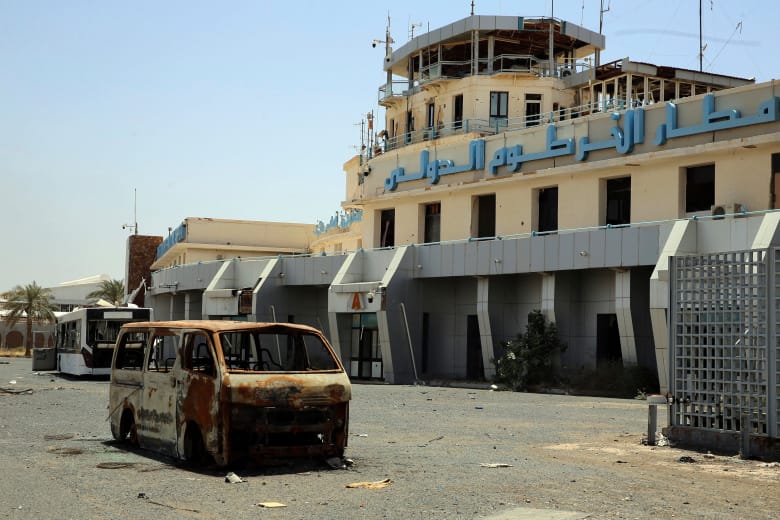
Русско-суданская рулетка
Недавний захват повстанцами военного аэропорта в Дарфуре и их стремительное продвижение к ливийской границе грозят не только изменить хрупкий расклад сил в Судане, но и значительно усугубить этот конфликт. Пока Москва укрепляет там свое влияние, а регионы страны тонут в насилии, суданская гражданская война уверенно превращается в тугой стратегический узел, где кровь мирных жителей и поставки контрабандного золота тесно переплетаются с геополитическими амбициями внешних игроков.

